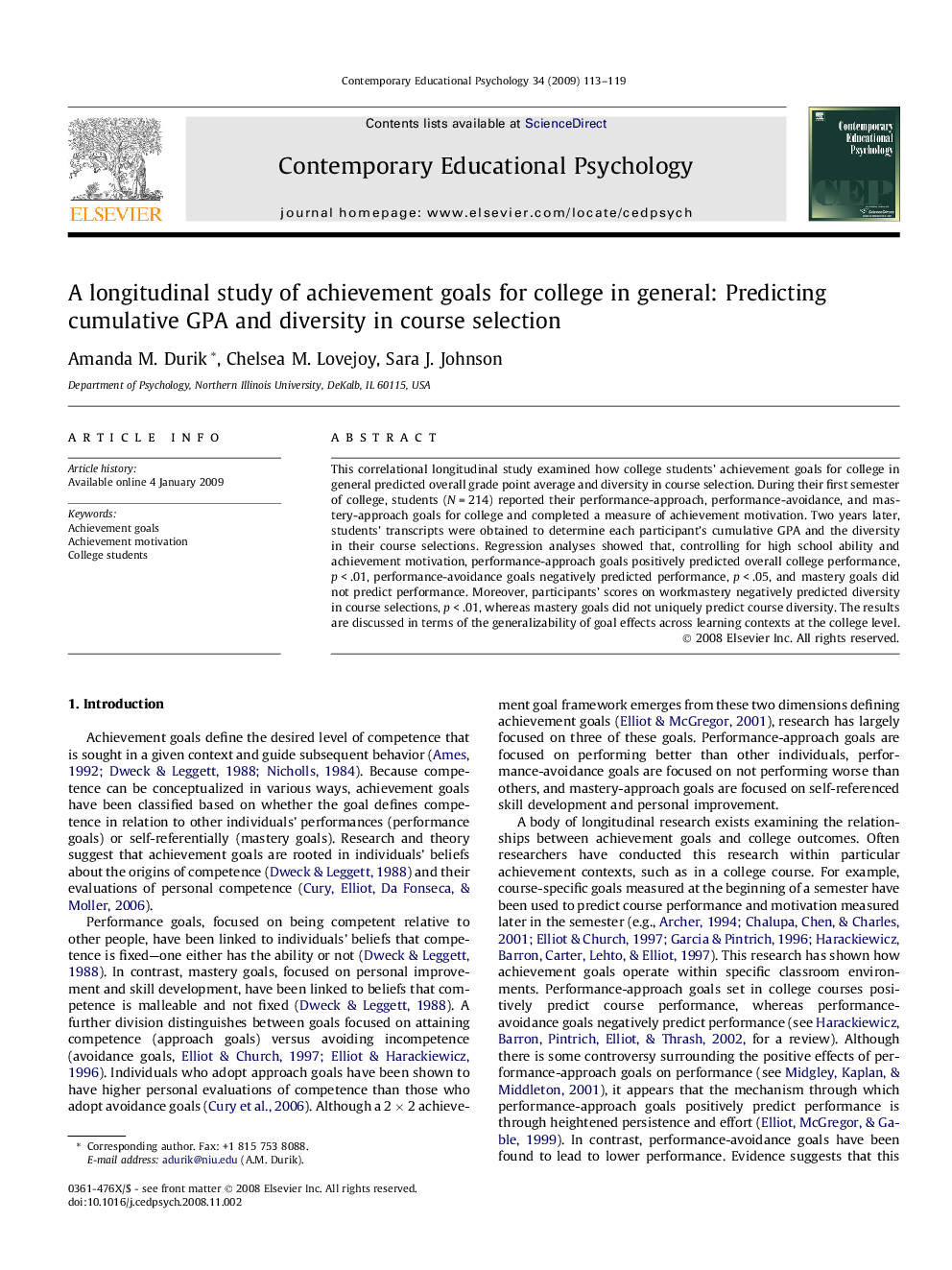| Article ID | Journal | Published Year | Pages | File Type |
|---|---|---|---|---|
| 352867 | Contemporary Educational Psychology | 2009 | 7 Pages |
This correlational longitudinal study examined how college students’ achievement goals for college in general predicted overall grade point average and diversity in course selection. During their first semester of college, students (N = 214) reported their performance-approach, performance-avoidance, and mastery-approach goals for college and completed a measure of achievement motivation. Two years later, students’ transcripts were obtained to determine each participant’s cumulative GPA and the diversity in their course selections. Regression analyses showed that, controlling for high school ability and achievement motivation, performance-approach goals positively predicted overall college performance, p < .01, performance-avoidance goals negatively predicted performance, p < .05, and mastery goals did not predict performance. Moreover, participants’ scores on workmastery negatively predicted diversity in course selections, p < .01, whereas mastery goals did not uniquely predict course diversity. The results are discussed in terms of the generalizability of goal effects across learning contexts at the college level.
